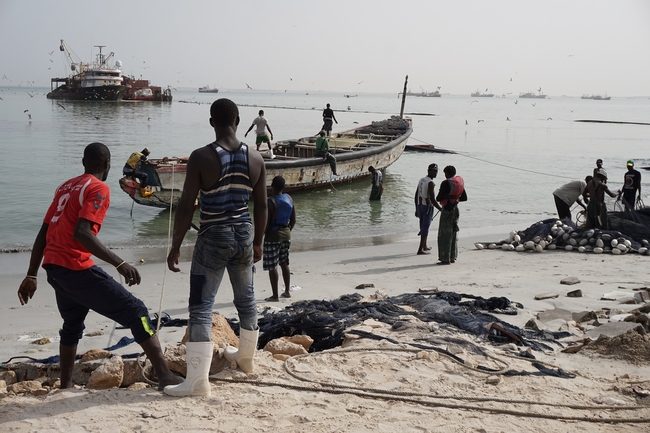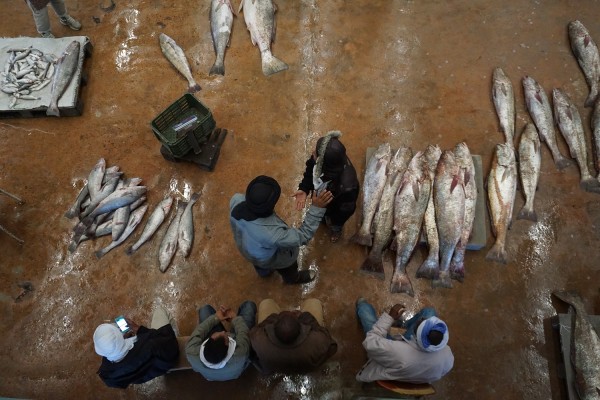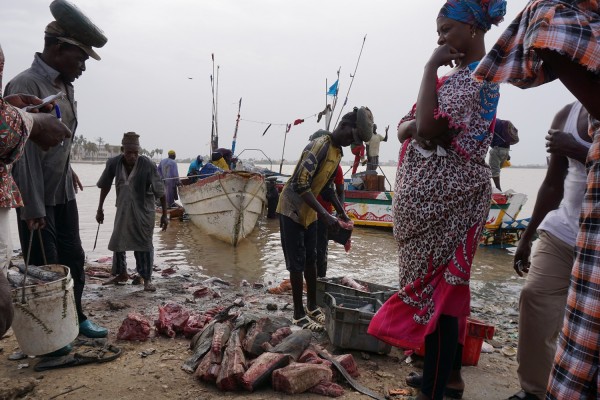23.10.2018 | On the basis of bilateral agreements with the neighbouring states China's fishing fleet, today by far the largest in the world, is operating more actively along the Atlantic coast of West Africa. Together with increasing investment in industrial fish meal production, the Chinese government's strategic involvement in West Africa's fisheries sector can be seen as part of the large-scale infrastructure project Maritime Silk Road Initiative (MSRI). Along the West African coast, however, local small-scale fishery with wooden pirogues has always been one of the most important sources of income and supplies the majority of the population with animal protein.
Professor Anna-Katharina Hornidge, head of the social science department at the Leibniz Centre for Tropical Marine Research (ZMT) and coordinator of the COST Action 'Ocean Governance', and Dr. Henryk Alff, postdoctoral researcher of the Working Group Development and Knowledge Sociology, spent one month in West Africa as part of a PADDLE with the Université Cheikh Anta Diop (UCAD) researching the manifold interactions between Chinese and local fisheries actors and their social, economic and political consequences.
These can be seen, for example, in competition, cooperation and adaptation phenomena. In talks with Hornidge and Alff, small fishermen in Dakar's various landing ports reported positive effects, above all the increased demand among Chinese fish traders for previously commercially uninteresting species and the increased revenues they would generate as a result. In contrast, women employed in local fish processing (mainly salting and drying) were much more negative, as they are increasingly denied access to affordable resources due to the competitive situation.
Hornidge and Alff are leading a network of scientists in Germany, West Africa, Southeast Asia and China that is currently being formed to seek an empirically based assessment of MSRI from a fisheries perspective.
Fischmarkt in Nouadhibou, Mauretanien





















